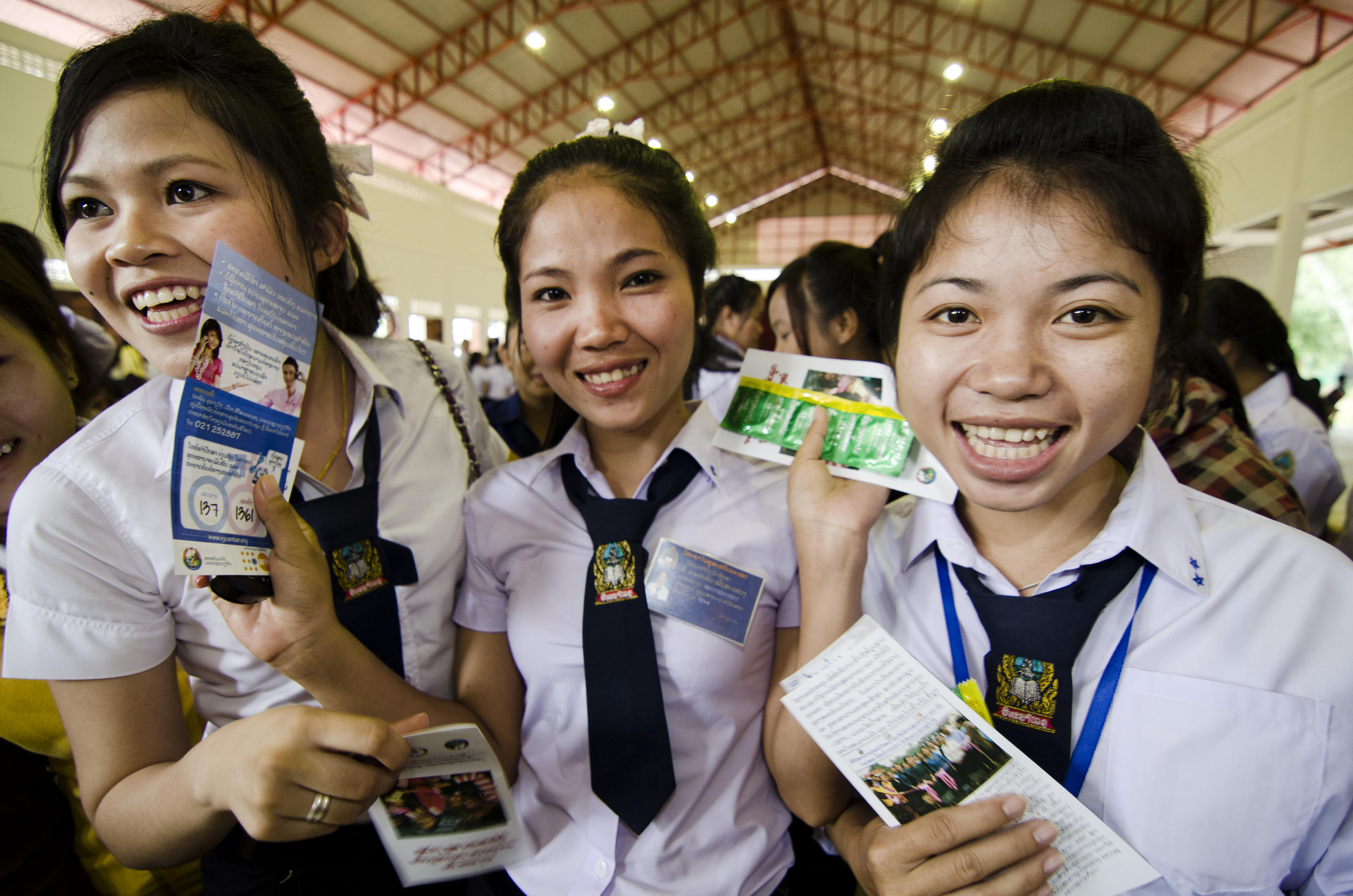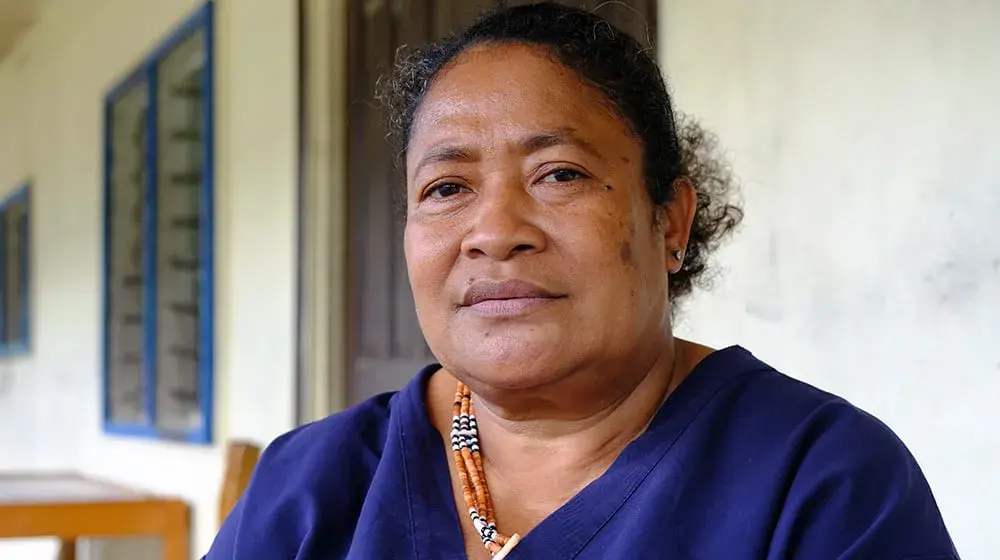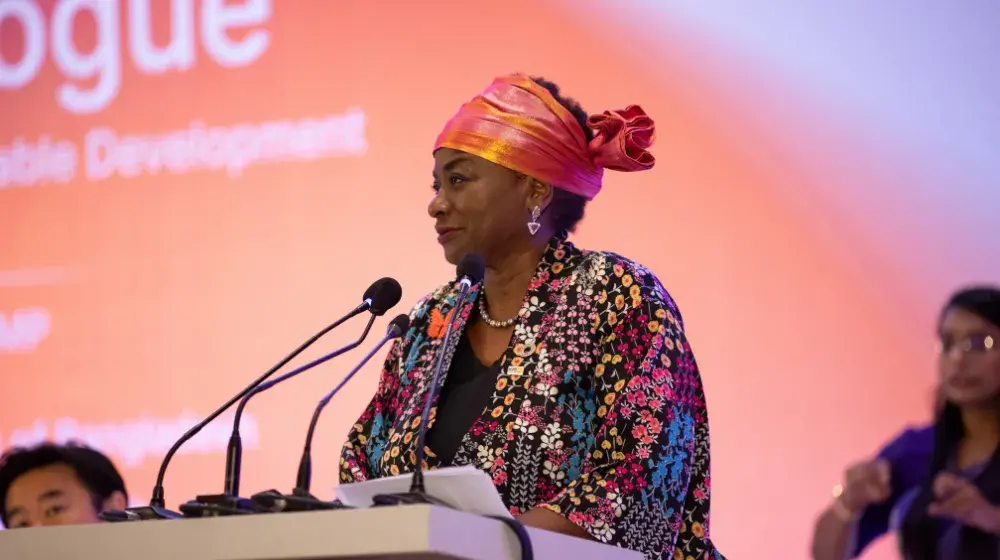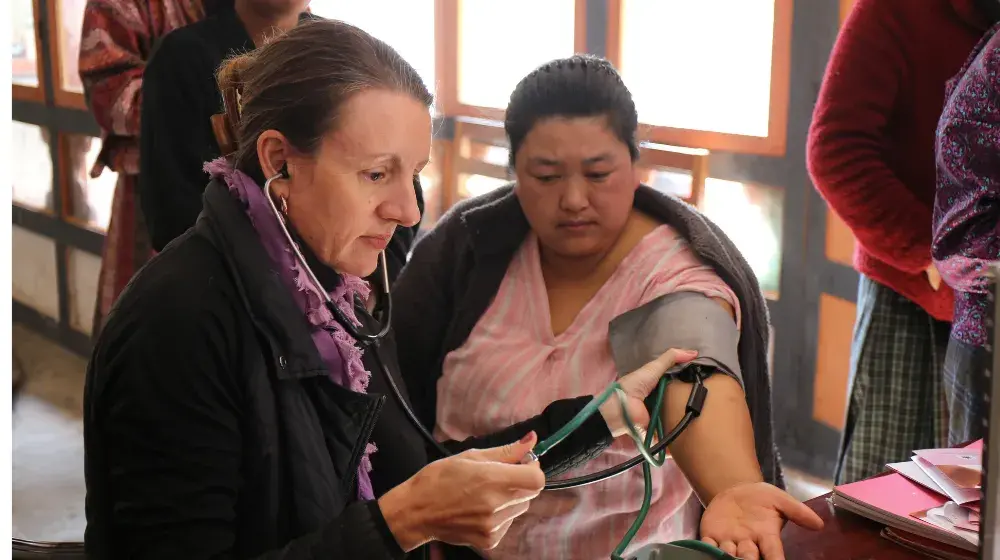UNFPA Asia-Pacific Regional Director Yoriko Yasukawa's opening remarks at the First National Family Planning Conference in Lao PDR
Don Chan Palace, Vientiane
3 May 2017
Your Excellency Deputy Prime Minister Sonexay Siphandone,
H. E. Professor Bounkong Syhavong, Minister of Health,
H.E. Dr. Kikeo Chanthaboury, Vice Minister, Ministry of Planning and Investment,
H.E. Dr. Phouthone Muengpark, Vice Minister, Ministry of Health,
Governors and Vice Governors of the provinces of the Lao People’s Democratic Republic,
Central and Provincial Health Officials,
Development Partners,
Distinguished Guests, Ladies and Gentlemen:
Good morning to you all - Sabaidee Ton Sao!
I am honored to represent the United Nations Population Fund at the First National Family Planning Conference in Lao PDR. On behalf of UNFPA, allow me to congratulate the Government of Lao PDR for organizing this important conference with the theme “Investing in Family Planning for Economic Prosperity."
Congratulations and thanks also to FP2020 and other stakeholders who have collaborated in the organization of this conference.
This conference comes at an especially important time, as Lao PDR and other UN Member States endeavor to accelerate efforts to achieve the 2030 Agenda for Sustainable Development, underpinned by the SDGs.
Family planning, and more broadly sexual and reproductive health and rights, are a key ingredient of this ambitious endeavor.
The 2030 Agenda for Sustainable Development and the SDGs
Together, the SDGs form a broad, holistic and ambitious agenda that proposes to build a better world for all people, leaving no one behind.
That means correcting the inequalities left by the MDG process, based on the simple but profound truth set forth in the Universal Declaration of Human Rights: that we are all born free and equal in dignity and rights.
The 2030 Agenda seeks to bring together all spheres of life – the economic, the social, the environmental, and also how we are governed and how we live together as societies.
It is an agenda that very much emphasizes the idea of ‘transformation’ that is, realizing a different vision of what development means, and what constitutes a good life.
The 2030 Agenda tells us that, while economic growth is key to development, we should aspire to more than just material wellbeing.
It tells us that development needs to be about building more caring societies and a caring world – where people and countries care for one another and also for nature, treating one another, especially the most marginalized and excluded, with solidarity, decency and respect.
We are happy to see that the Lao Five-Year National Social-Economic Development Plan incorporates many of the principles of the 2030 Agenda.
Family Planning and the SDGs
So why is family planning key to achieving this transformation?
First of all, it is essential for ensuring the goal of good health and wellbeing for all people. That is why one of the targets under this goal is: By 2030, ensure universal access to sexual and reproductive health-care services, including for family planning, information and education, and the integration of reproductive health into national strategies and programmes.
It is gratifying to see that the Lao Five-Year Plan reflects this commitment. This is especially critical for reaching two other health targets in the 2030 Agenda, which is to drastically reduce maternal deaths and also child and newborn deaths.
Universal access to family planning is also key to gender equality and the empowerment of women and girls – goal 5 in the 2030 Agenda. That is why sexual and reproductive health and reproductive rights are included under this goal as well: And as we all know, good health and gender equality are also essential for achieving other goals such as eradicating poverty and hunger, quality education for all people, promoting economic growth with decent work for everyone, reducing inequalities and building peaceful and inclusive societies.
But even beyond these very important specific goals, sexual and reproductive health and rights are at the heart of the transformation toward more caring societies that the 2030 Agenda calls for.
At the core, sexual and reproductive health and rights are about how we love – that is, whether we love with respect, without violence, with caring -- with whom and how we share our bodies and our hearts, and whether and when and how many children we have.
It is about being able to freely make happy and responsible decisions on these momentous questions that are also respectful and caring of our partners as well as our future children.
Family Planning in Lao PDR
This Family Planning Conference is an excellent opportunity to reflect on how far Lao PDR has come in its endeavor to achieve this ideal and what more needs to be done.
On the one hand the country has made enormous progress. Only between 2012 and 2015, Lao PDR has reduced its maternal mortality ratio from 357 to 197 per 100,000 live births. In absolute terms, this means 170 fewer women dying every year.
But even with this reduction, we still have a long way to go.
The 2030 Agenda calls for the target of 70 per 100,000 live births. But, in fact, even one preventable maternal death is one too many. So we do need to do much more to expand access to sexual and reproductive health services including family planning, improve the quality of these services and ensure that everyone, especially young people and ethnic minority people, has the information needed to make good decisions about their sexual and reproductive health.
Access to services continues to be a big challenge in Lao PDR. Unmet need for family planning remains high at 20 per cent, and even higher – as much as 31 per cent – among some ethnic groups.
Also, many women still lack care by trained health professionals when they give birth – the latest data tell us that only half of all child births are attended to by skilled birth attendants.
A key condition to expanding access to services as well as improving their quality is increasing public investment in health services, both by national as well as provincial and local governments. While Lao PDR has made important efforts on this front, public health expenditure as a percentage of GDP, at 2.8%, is still relatively low when compared to other countries in the ASEAN region which have achieved lower maternal mortality levels and higher access to family planning services.
Unmarried young people have special difficulties in gaining access to services and information. In 2015, I had the opportunity to visit a center in Vientiane run by an NGO where dedicated health professionals and youth volunteers were providing much needed support to young people seeking services and advice. We hope that the Lao Government can build on experiences like this one to greatly expand services and also provide comprehensive sexuality education in all schools.
Comprehensive sexuality education is not only about teaching the biology of sex but about helping young people to think, discuss and learn about how to develop healthy and respectful and loving relationships with others, with gender equality being a crucial ingredient of the curriculum. This is key to lowering the adolescent birth rate which in Lao PDR is among the highest in ASEAN at 76 births per 1,000 girls in the 15 to 19 age group.
But not only that – the kind of ‘soft’ skills I just mentioned that are so important for people to live and work together in harmony are also essential for economic productivity. Ensuring sexual and reproductive health and reproductive rights for all women is essential for gender equality, and the converse is also true. We need to eliminate obstacles to gender equality and combat violations of the rights of women and girls.
One grievous form of discrimination and violation of the fundamental rights of women and girls is violence, including at the hand of husbands and other intimate partners. A recent survey carried out by the Lao Government – a crucial step toward eliminating this scourge – found that 30% of women had experiences some type of violence in their lifetime.
Much more needs to be done also to guarantee the right to education for all girls. The Population and Housing Census of 2015 found that 42,000 adolescent girls never attend school and approximately 90.000 girls aged 6-16 years dropped out of school. We need a society-wide effort to get all girls into school and to help them stay in school until they complete at least a secondary education.
Let me briefly mention Noi, a character UNFPA has created together with national partners to represent the over 700,000 adolescent girls aged 10 to 19 in Lao PDR. Together we need to ensure that in the next 15 years, girls like Noi will grow up healthy, in a safe environment and with access to information and services they need to make their own decisions about their futures.
Graduation from LDC Status
Lao PDR has set itself the goal of graduating from LDC status by the year 2020. UNFPA applauds this goal, and we hope to support your effort to achieve it by helping you to improve the health and wellbeing of all of the inhabitants of the country, especially the women and girls, and also helping to formulate and apply policies and legislation that ensure that all women and girls can fully develop and exercise their capacity to contribute to this goal. These are essential conditions for economic growth and also for ensuring that the fruits of that growth are enjoyed equitably by all people – not just a privileged few.
By organizing this important conference, we believe that Lao PDR is taking an important step toward giving an example to the world – an example of a prosperity that goes beyond the accumulation of material wealth and ensures that that wealth is translated into the health, wellbeing and dignity of all people.
This will not be an easy process, but we have faith in the tenacity and perseverance of the Lao people, who have overcome enormous hardships and tragedy, and in the collective commitment made by the nations of the world in adopting the 2030 Agenda.
So let us all of us here take on this difficult challenge together and persevere until we reach the goal set out in this conference of family planning and prosperity for all.





